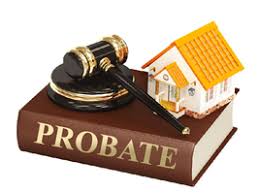A Guardianship and Trust are the form of Last Will and Testament typically used by the parents of young minor (under 18) kids. Unlike a simple will, a Guardianship and trust allow you to state exactly where or to whom your assets will go and also allows for the naming of an Executor. It is very similar to the standard Wills but is a more legally binding document that ensures the future of your minor kids and provides for their safety. In general, a Will can only be executed upon the express written agreement of the person to whom it is being executed. A guardianship and trust provide that same protection to your minor kids without requiring the full written agreement of the people that would be getting the assets transferred.
Once the decedent has no one to claim his/her property or assets, the court appoints a “trustee” or “warden” to handle the decedent’s affairs in place of the decedent. An important distinction between guardianship and trust is that the latter does not need to be overseen by a court or involve court hearings. In addition, in cases of extreme financial hardship, it may also be possible for a minor child to become the ward or beneficiary of another individual without involving a court. This is especially true if that individual is capable of paying and providing for the necessary expenses pertaining to the guardianship; or if the minor child has a close relationship with the decedent or has been in the decedent’s company.
It is very important that you hire an experienced and reliable guardianship and trust attorney if you are going through this process. A good attorney should be able to review your current estate plan and provide advice as to what steps to take in the event of your disability or death. They will also work with your doctor and your legal representatives to establish a guardianship trust. This is a legally binding contract that ensures the continuation of your children’s interests after your disability or death. A successful guardianship trust typically will pay a regular income and dividend to your beneficiaries.
The state of Texas has a simple trust statute that requires all trusts to be established on a day and date specified by the court. Any change in the date or name of the trust must be filed with the courts. In Texas, trusts must be filed with the Office of the Secretary of State in the state of Texas. A certified public accountant is required to file a document accompanied by an asset valuation certificate, when undertaking a probate action under the Texas intestate laws. This serves as proof that the value of the assets being protected has been accurately estimated. This is needed to ensure that the testator’s estate will be distributed as prescribed under Texas intestate laws.
 Once the testator’s estate has been established, it will continue to be protected by Texas law. A Texas judge will consider any issues that arise within the estate during the course of the probate process. He may order a posthumous estate distribution. In this case, the deceased person’s will is immediately terminated upon death and his or her personal property is divided among the heirs. The court also has the right to determine how the property is to be dispersed.
Once the testator’s estate has been established, it will continue to be protected by Texas law. A Texas judge will consider any issues that arise within the estate during the course of the probate process. He may order a posthumous estate distribution. In this case, the deceased person’s will is immediately terminated upon death and his or her personal property is divided among the heirs. The court also has the right to determine how the property is to be dispersed.
If you need more assistance concerning Texas intestate laws or any other aspect of estate planning, you should contact an experienced attorney. An attorney can provide you with the information and guidance you need regarding your guardianship and will work with you to protect your interests. Contact one from www.georgiaprobateattorneys.net today.
 Estate planning is an essential component of estate tax planning and must be undertaken as a part of any estate plan. In order to successfully revokes a will, a testator must be in financial difficulty, there must be a substantial uncertainty about the future of the testator’s estate and the testator must be in compliance with applicable estate tax laws. Some jurisdictions refer to a will as a “power of attorney” and others to a “writing of trust.” The term will does not imply that the document itself is invalidated by the federal law, it simply provides for the existence of a prior written document that was not properly executed under the provisions of the law, said
Estate planning is an essential component of estate tax planning and must be undertaken as a part of any estate plan. In order to successfully revokes a will, a testator must be in financial difficulty, there must be a substantial uncertainty about the future of the testator’s estate and the testator must be in compliance with applicable estate tax laws. Some jurisdictions refer to a will as a “power of attorney” and others to a “writing of trust.” The term will does not imply that the document itself is invalidated by the federal law, it simply provides for the existence of a prior written document that was not properly executed under the provisions of the law, said 